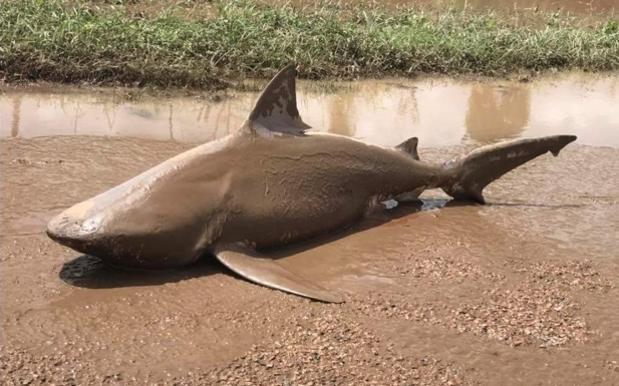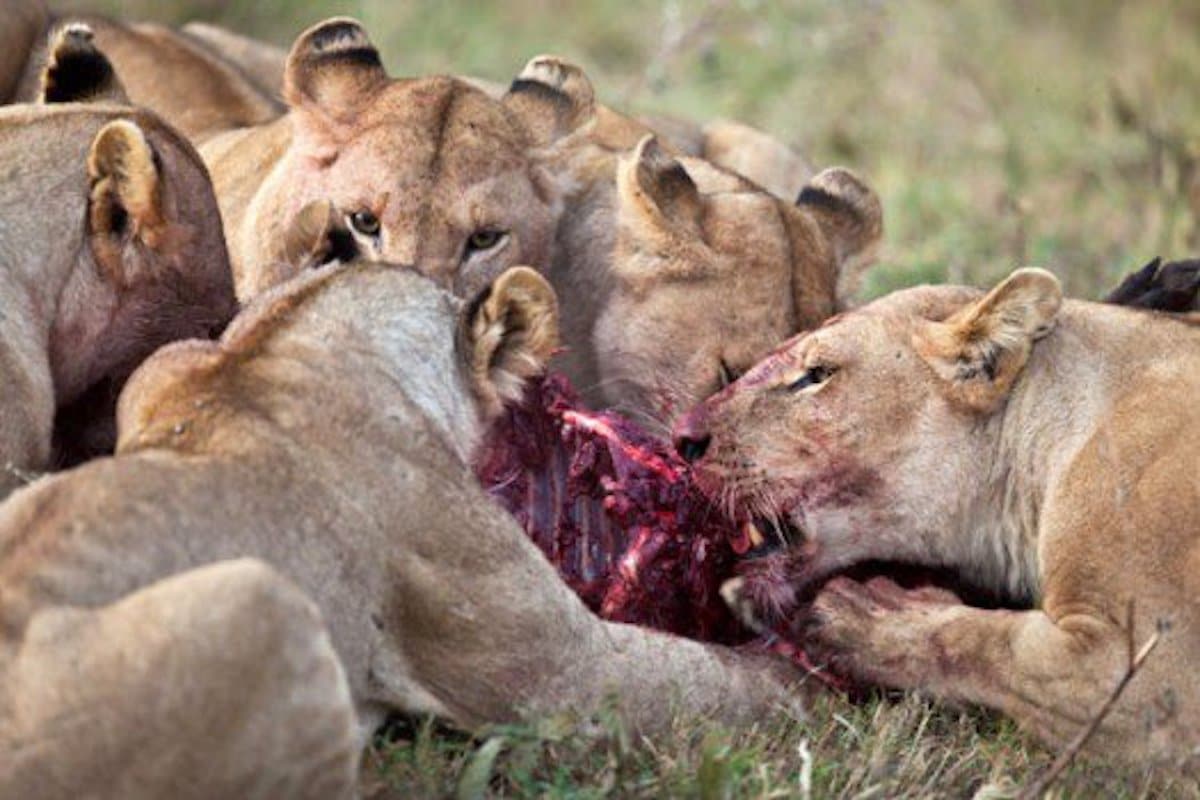
This big shark that washed up by a road is the only reminder you’ll ever need to stay out of floodwaters in Queensland.
Australia is in the heart of its hurricane season, and one that slammed into the island continent this week left a man-eating bull shark on a residential road, the U.K. Mirror reported.
A photo of the dead shark went viral, and Queensland Fire and Emergency Services used it to warn residents to stay out of murky floodwaters following the passage of Cyclone Debbie. “Think it’s safe to go back in the water?” the agency asked on Twitter and Facebook. “Think again!”
Bull sharks are aggressive, common, and usually live near high-population areas like tropical shorelines. They are not bothered by brackish and freshwater, and even venture far inland via rivers and tributaries.
Because of these characteristics, many experts consider bull sharks to be the most dangerous sharks in the world. Historically, they are joined by their more famous cousins, great whites and tiger sharks, as the three species most likely to attack humans.
Bull sharks get their name from their short, blunt snout, as well as their pugnacious disposition and a tendency to head-butt their prey before attacking. They are medium-size sharks, with thick, stout bodies and long pectoral fins. They are gray on top and white below, and the fins have dark tips, particularly on young bull sharks.
They are found cruising the shallow, warm waters of all the world’s oceans. Fast, agile predators, they will eat almost anything they see, including fish, dolphins, and even other sharks. Humans are not, per se, on their menus. However, they frequent the turbid waters of estuaries and bays, and often attack people inadvertently or out of curiosity.
Bull sharks currently are not threatened or endangered. However, they are fished widely for their meat, hides, and oils, and their numbers are likely shrinking. One study has found that their average lengths have declined significantly over the past few decades.
Cyclone Debbie hit as a category-four storm.
#Sharknado. Locals at #Ayr sadly discover another of the untold thousands of marine and land animals that were victims of #CycloneDebbie pic.twitter.com/tMf2WBomQH
— Marcus Middleton (@MMiddleton_10) March 30, 2017













